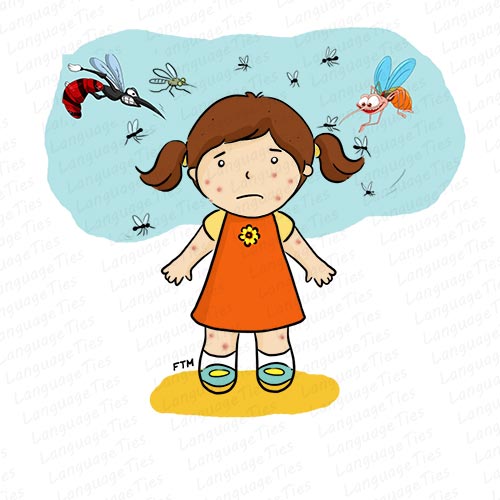complain
to say that something is wrong or not satisfactory
شكايت كردن، عيبجويى كردن، ايراد گرفتن
He complained to me about the noise.
او دربارهى سر و صدا به من شكايت كرد.
Oxford Essential Dictionary
complain
verb (complains, complaining, complained )
to say that you do not like something or that you are unhappy about something:
She is always complaining about the weather.
He complained to the waiter that his soup was cold.
Longman Dictionary of Contemporary English
complain
com‧plain S2 W3 /kəmˈpleɪn/ BrE AmE verb
[Date: 1300-1400; Language: Old French; Origin: complaindre, from Vulgar Latin complangere, from Latin com- ( ⇨ COM-) + plangere (PLAINT)]
1. [I, T not in passive] to say that you are annoyed, not satisfied, or unhappy about something or someone ⇨ complaint:
Residents are complaining because traffic in the area has increased.
‘You never ask my opinion about anything,’ Rod complained.
complain (that)
She complained that no one had been at the airport to meet her.
complain about
She often complains about not feeling appreciated at work.
complain of
Several women have complained of sexual harassment.
complain to
Neighbours complained to the police about the dogs barking.
Employees complained bitterly about working conditions.
2. (I/you/he etc) can’t complain spoken used to say that a situation is satisfactory, even though there may be a few problems:
I make a good living. I can’t complain.
COLLOCATIONS
■ adverbs
▪ complain bitterly (=in a very angry way) My grandfather’s always complaining bitterly about how expensive things are.
▪ complain loudly The kids were complaining loudly about the heat.
▪ constantly complain She was constantly complaining about her job.
■ phrases
▪ have the right to complain You have the right to complain if you’re not satisfied with the service you’re getting.
▪ have (good) reason to complain We felt we had good reason to complain about the food at the hotel.
▪ have little/no reason to complain The school is good and parents have little reason to complain.
▪ have cause to complain Patients sometimes have cause to complain about the hospital treatment they receive.
▪ be in a position to complain (=have a good reason to complain) If you feel you are bullied at work, you are certainly in a position to complain.
▪ be the first to complain (=be quick to complain) He’s the first to complain if he thinks something is unfair.
THESAURUS
▪ complain to say that you are annoyed, unhappy, or not satisfied about something or someone: Several customers complained about the service they received. | ‘I wish you’d stop telling me what to do,’ she complained.
▪ make a complaint to formally complain about something to someone in authority: His parents made a complaint to the head teacher.
▪ protest to complain about something that you think is wrong, especially publicly: Demonstrators were protesting against the war.
▪ object to say that you oppose or disapprove of something: Local residents have objected to the plan. | Some teachers objected to the scheme.
▪ grumble to keep complaining in a bad-tempered way about something: Rail travellers have been grumbling about the increase in ticket prices. | What’s he grumbling about now?
▪ moan/whine informal (also whinge /wɪndʒ/ British English informal) to keep complaining in an annoying way: Everyone was moaning about the hotel food. | Stop whingeing and get on with your work!
▪ kick up/make a fuss to complain or become angry about something, especially something that is not very important: The soup wasn’t hot enough, but he didn’t want to make a fuss. | He kicked up such a fuss that they were offered another room.
complain of something phrasal verb formal
to say that you feel ill or have a pain in a part of your body:
Dan’s been complaining of severe headaches.
Oxford Advanced Learner's Dictionary
complain
com·plain [complain complains complained complaining] [kəmˈpleɪn] [kəmˈpleɪn] verb intransitive, transitive
to say that you are annoyed, unhappy or not satisfied about sb/sth
• ~ (to sb) (about/of sth) I'm going to complain to the manager about this.
• The defendant complained of intimidation during the investigation.
• She never complains, but she's obviously exhausted.
• (informal) ‘How are you?’ ‘Oh, I can't complain (= I'm all right).’
• ~ (that)… He complained bitterly that he had been unfairly treated.
• + speech ‘It's not fair,’ she complained.
Derived: complain of something
Verb forms:
Word Origin:
late Middle English: from Old French complaindre, from medieval Latin complangere ‘bewail’, from Latin com- (expressing intensive force) + plangere ‘to lament’.
Thesaurus:
complain verb I, T
• He complained that he had been unfairly treated.
protest • • object • |disapproving grumble • • whine • • carp • |informal, disapproving moan •
complain/protest/grumble/whine/carp/moan about sth
complain/protest/grumble/moan at sth
complain/protest/object/grumble/whine/moan that…
Synonyms:
complain
protest • object • grumble • moan • whine
These words all mean to say that you are annoyed, unhappy or not satisfied about sb/sth.
complain • to say that you are annoyed, unhappy or not satisfied about sb/sth: ▪ I'm going to complain to the manager about this.
protest • to say or do sth to show that you disagree with or disapprove of sth, especially publicly; to give sth as a reason for protesting: ▪ Students took to the streets to ▪ protest against ▪ the decision.
object • to say that you disagree with or disapprove of sth; to give sth as a reason for objecting: ▪ If nobody objects, we'll postpone the meeting till next week. ◊ ▪ He objected that the police had arrested him without sufficient evidence.
grumble • (rather informal, disapproving) to complain about sb/sth in a bad-tempered way: ▪ They kept grumbling that they were cold.
moan • (BrE, rather informal, disapproving) to complain about sb/sth in an annoying way: ▪ What are you moaning on about now?
whine • (rather informal, disapproving) to complain in an annoying, crying voice: ▪ Stop whining! ◊ ▪ ‘I want to go home,’ whined Toby.
Whine is often used to talk about the way that young children complain.
to complain/protest/grumble/moan/whine about sth
to complain/protest/grumble/moan at sth
to complain/protest/object/grumble/moan/whine to sb
to complain/protest/object/grumble/moan/whine that…
Example Bank:
• All the guests complained about the noise.
• He really has no right to complain.
• I'm going to complain to the authorities about this!
• It was entirely my own idea, so I can hardly complain.
• She complained at the unfairness of it all.
• She complained bitterly about the lack of help she received.
• ‘How are you?’‘Oh, I can't complain.’
• ‘It's not fair,’ she complained.
• She never complains, but she's obviously exhausted.
Cambridge Advanced Learner's Dictionary
Cambridge Advanced Learner's Dictionary - 4th Edition
complain / kəmˈpleɪn / verb [ I ]
B1 to say that something is wrong or not satisfactory:
Lots of people have complained about the noise.
You're always complaining!
[ + that ] He complained that his boss was useless and he had too much work.
B1 to tell someone formally that something is wrong:
If the service was so bad why didn't you complain to the manager?
complainingly / kəmˈpleɪ.nɪŋ.li / adverb
"You always walk too fast for me," she said complainingly.
© Cambridge University Press 2013
Collins COBUILD Advanced Learner’s English Dictionary
complain
[kəmple͟ɪn]
complains, complaining, complained
1) VERB If you complain about a situation, you say that you are not satisfied with it.
[V that] Miners have complained bitterly that the government did not fulfill their promises...
[V about/of n] The American couple complained about the high cost of visiting Europe...
[V about/of n] For my own part, I have nothing to complain of...
[V to n] They are liable to face more mistreatment if they complain to the police...
People should complain when they consider an advert offensive...
[V with quote] `I do everything you ask of me,' he complained, `but still you act as if you're suffering.'
2) VERB If you complain of pain or illness, you say that you are feeling pain or feeling ill.
[V of n] He complained of a headache.
Merriam-Webster's Advanced Learner's Dictionary
complain
com·plain /kəmˈpleɪn/ verb -plains; -plained; -plain·ing
1 [no obj] : to say or write that you are unhappy, sick, uncomfortable, etc., or that you do not like something
• He works hard but he never complains.
• If you're unhappy with the service, you should complain to the manager.
- often + about or of
• Customers are sure to complain about the price increase.
• In her letters, she complains of loneliness. [=she says that she is lonely]
• She complained of a sore throat. [=she said she had a sore throat]
• “How are you feeling?” “I can't complain.” [=I am not unhappy or ill; I am fine]
2 [+ obj] : to say (something that expresses annoyance or unhappiness)
• The students complained that the test was too hard.
• “These shoes are too tight,” he complained.
- com·plain·er noun, pl -ers [count]
• He's a chronic complainer. [=he complains constantly or often]
- com·plain·ing·ly /kəmˈpleɪnɪŋli/ adv




